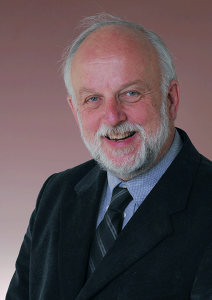Overview of the Status and Future Direction
Presenter: Geoff Norman
January 7, 12 PM ET
 Medical education research is a relatively new field, which can trace its origins precisely to a group in Buffalo, NY, led by George Miller in the 1950s. These individuals came from diverse backgrounds, with virtually no relevant prior academic achievement. However through the collaborations engendered by the collaboration between medical teachers and academics, the field rapidly evolved. A major stimulus for the field was the development of the new problem-based schools at McMaster and Maastricht in the 1970s, with both schools committing resources to fund major research programs to evaluate the success of these innovations. Finally, another parallel development was the efforts by the American licensing and certifying bodies, primarily the National Board of Medical Examiners and the American Board of Internal Medicine, as well as the Medical Council of Canada, to improve student evaluation methods.
Medical education research is a relatively new field, which can trace its origins precisely to a group in Buffalo, NY, led by George Miller in the 1950s. These individuals came from diverse backgrounds, with virtually no relevant prior academic achievement. However through the collaborations engendered by the collaboration between medical teachers and academics, the field rapidly evolved. A major stimulus for the field was the development of the new problem-based schools at McMaster and Maastricht in the 1970s, with both schools committing resources to fund major research programs to evaluate the success of these innovations. Finally, another parallel development was the efforts by the American licensing and certifying bodies, primarily the National Board of Medical Examiners and the American Board of Internal Medicine, as well as the Medical Council of Canada, to improve student evaluation methods.
All of these developments set the stage for the field as we see it today, where a large number of researchers from many different social and behavioral sciences, from policy analysis to kinesiology, use a potpourri of research methods to address diverse questions related to health professions education. While this diversity is an enormous strength and a defining characteristic of the field, it does bring into focus some fundamental questions about what are the common threads. In particular, as the field matures standards for research have evolved. No longer is the focus solely or even primarily on the design of solutions for local problems; instead many journals demand evidence that research has theoretical underpinnings and generalizable application.
In this session, I will attempt to engage you in exploring some of these questions. We will explore, in a general way, what, if any, are the commonalities of all our research enterprises, and indeed what is the demarcation between scientific inquiry and other academic pursuits. In the course of the talk, we should be able to better understand what are the ingredients of successful research in health sciences education.